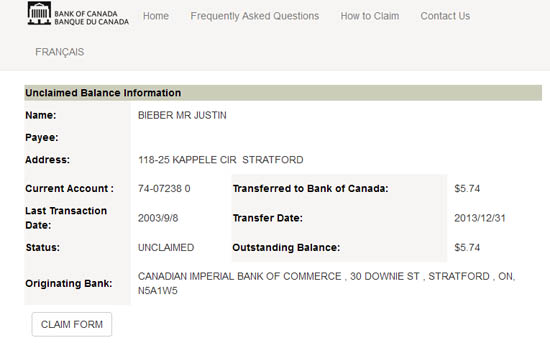Like many Canadians, we won’t have much steady income in retirement. We don’t have any defined benefit pension plans. Yes, CPP and possibly OAS will pay us a certain amount per month. But most of our income will come from dividend and interest payments from our investments and those are not all paying monthly. (We do have some money invested in stocks that pay a monthly dividend though.) So one of my goals has been to reduce the number of bills we must pay on a fixed schedule.
Reduction One: Getting Rid of our Rental Water Heater
In a recent gas bill from Enbridge, I received a flyer called “Information for Direct Energy’s Customers about Residential Water Heaters.” Although I’m not a Direct Energy customer, I read it anyway.
First it had the usual fear factors listed under the heading of “Typical Water Heater Repairs:”
- Ventor motor $827
- Gas valve $526
- Flame sensor $342
I call this fear mongering. A brand new GE 40 gallon natural gas water heater with a 12 year warranty (the longest available) is $688.50 from Home Depot in Toronto. I know you’d have to pay installation on top of that, but even so a brand new tank would be cheaper than the repair for the ventor motor!
Anyway, it says that
a CV40 is $15.59 a month,
a PV40 is $24.49 a month,
a DV40/50 is $25.49 a month,
and a PDV 40/50 is $29.99 a month.
I believe a PDV is a power direct vent, a DV is a direct vent, a PV is a power vent, and a CV may be a conventional (or convection?) vent. Direct Energy doesn’t provide any explanation for these tank descriptions on the flyer.HST is applied on top of those prices.
Another asterisk points out that “unlisted tanks will be subject to an average 2.5% increase over the 2013 rates.
2.5% in one year! For a tank that’s one year older and in many cases has long since paid out the capital and installation costs. Robbery!
I believe that means that we would be paying $25.49*1.13 or $28.80 for our tank if we were renting it.
Fortunately, we bought and installed our own water heater tank with the help of Home Depot and a local contractor several years ago. That removed another fixed monthly bill of over $28.80 a month from our budget.
Yes, we have to save to replace the tank and/or to fix it if it breaks down.
When we paid to have everything done the last time, from delivery to installation to removal of the old tank, it cost $910.90. Based on the price we were paying to rent a tank that was almost 20 years old, it would have taken 5 years to pay that out. The payout compared to a new rental tank was 3 years.
Which means it paid out 3 months ago. Cool!
It’s been working fine and the maintenance is the same as for a rental heater (just draining it once a month to help reduce the buildup of scale.)
So by replacing our rental water heater with one we purchased, we have removed the need to pay a fixed monthly bill of about $28.80 a month.
Reduction Two: Eliminating our Cable TV Bill
So far our experiment with switching to an Over the Air indoor antenna has been working well. We no longer have to pay a monthly cable TV bill. Since we are not huge sports fans this has not been a problem for us.
Cutting our ties to Rogers has removed a fixed monthly bill of over $40.50 from our budget. (And it was steadily increasing. It grew from 26.44 a month to 40.50 a month in 10 years with no change in the channels we received or the quality of our signal. In fact, I just checked online and basic cable would be $43.37 not including a digital or HDTV box, plus an asterisk says that rates will increase on March 24 2014.)
What Other Fixed Monthly Bills Can We Eliminate or Reduce?
Some of our bills can’t be eliminated easily. We’ll have to pay for water, electricity, and natural gas.
I plan to check the details of our property taxes, car and house insurance, though. We pay those monthly. I have a bad feeling that we may be paying more than if we just paid them with a lump sum annual payment. If so, we’ll switch to annual. That wouldn’t really fit into this category of eliminating a monthly bill, but it might be a good idea just to save money.
Other Fixed Monthly Bills We’ve Avoided or Minimized
- Monthly condo fees: We don’t live in a condo.
- Security and alarm fees: Our police officer friends say that alarms don’t stop break ins. (We leave our drapes open so thieves who are shopping can see we don’t own anything of value.)
- Voice mail fees: We have a machine that cost $20 over 20 years ago. It’s still working beautifully.
- Other telephone fees: We don’t pay anything for “features.”
- Internet fees: We just use our neighbour’s Wifi. (Oops. I hope he doesn’t read this blog.)
- Gym fees: We have some weights and an exercise bike for the off season and regular bikes and sports equipment for the rest of the year.
- Golf/Tennis/Racquet/Yacht Club fees: We’re more “pay as you go” people than club joiners.
- Gasoline costs: Have feet will travel.
Right now, we tend to focus more on increasing our earnings than on decreasing our costs. As we shift into retirement in a decade or so, though, I expect that will change. These steps are gradually taking us to where we want to be.
Related Reading
Join In
Have you eliminated any monthly bills to simplify your retirement spending? Which bills could you banish? Please share your experiences with a comment.

